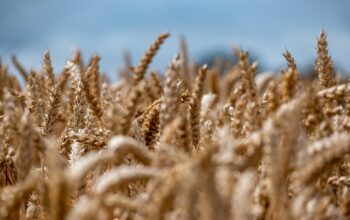Livestock management in Ontario requires a tailored approach with appropriate farm fence solutions. Different species have varying space needs; for instance, sheep need less room than cattle or horses. Farmers can choose from traditional options like post-and-rail, wire (standard or high-tensile steel), or modern electric fences. Custom designs using materials like wood, steel, or PVC adapt to unique farm layouts and livestock requirements, enhancing herd health, productivity, and control while promoting animal welfare.
Ontario farms come in various sizes and shapes, with each requiring tailored solutions for containing diverse livestock. This article explores the multitude of farm fence options designed to meet the unique needs of different animals, from traditional post and rail to modern electric fencing systems. We delve into custom designs that cater to specific livestock and offer practical advice for navigating the world of farm fences, ensuring efficient containment without compromising animal welfare.
- Understanding Livestock Needs and Farm Fence Types
- Traditional Fences: Post and Rail, Wire, and More
- Modern Innovations: Electric Fences for Efficient Containment
- Custom Solutions: Designing Farm Fences for Diversity
Understanding Livestock Needs and Farm Fence Types
Livestock management on Ontario farms requires understanding each animal’s unique needs, behaviour, and potential escape risks. This knowledge is key to selecting appropriate farm fences. Different livestock species have varying requirements for space, security, and safety. For example, sheep typically need less space per animal compared to cattle or horses.
Ontario farmers can choose from a variety of farm fence types designed to accommodate these differences. Typical options include chain-link, post-and-rail, wood, and electric fences. Each material offers unique benefits tailored to specific livestock needs and farm layouts. Properly installed and maintained farm fences not only keep animals contained but also contribute to overall herd health and productivity.
Traditional Fences: Post and Rail, Wire, and More
On Ontario farms, selecting the right farm fence is key to effectively containing diverse livestock. Traditional fence options like post and rail, wire, and high-tensile steel provide reliable barriers, each with unique advantages and considerations. Post and rail fences, for instance, offer durability and visibility, making them suitable for enclosing fields and pasturages. They are easily customizable and can be combined with electric fencing to create multiple zones within a larger field.
Wire fences, including standard wire and high-tensile steel, are popular choices due to their cost-effectiveness and ease of installation. High-tensile steel wires specifically provide superior strength and longevity, ideal for containing more aggressive livestock or in areas prone to strong winds. These versatile options can be configured into various patterns, such as straights, curves, or grids, allowing farmers to tailor the fence to their specific layout and management needs.
Modern Innovations: Electric Fences for Efficient Containment
Modern innovations in farming have led to advanced farm fence options, particularly electric fences, which offer efficient and effective containment for diverse livestock. These systems are designed to provide a gentle yet reliable deterrant, allowing farmers to manage their animals with minimal stress and maximum control.
Electric fences utilize low-voltage electrical current to create a safe but noticeable barrier, enabling farmers to define specific areas for grazing, paddocks, or even individual animal enclosures. This technology not only enhances the efficiency of livestock management but also promotes animal welfare by encouraging desired behaviors and preventing accidental escapes.
Custom Solutions: Designing Farm Fences for Diversity
Many Ontario farms embrace diversity, caring for a mix of livestock that require tailored care and containment solutions. Custom farm fence designs offer an adaptable approach to managing this complexity. By working with experienced professionals, farmers can create unique barriers that accommodate specific animal needs while enhancing overall productivity.
These solutions may incorporate different materials, such as wood, steel, or polyvinyl chloride (PVC), and utilize innovative techniques for strength, durability, and aesthetics. Custom farm fences can incorporate height adjustments, electric fencing components, and specialized gates to ensure each livestock species receives the right level of security and freedom within their designated areas.
When it comes to containing diverse livestock on Ontario farms, there’s a farm fence option to suit every need. By understanding the unique requirements of each animal and exploring modern innovations like electric fencing, farmers can create effective yet sustainable containment systems. Custom designs offer flexibility and tailored solutions, ensuring optimal safety and productivity for all types of livestock. Investing in the right farm fence type pays dividends in managing your herd efficiently and enhancing your farm’s overall success.




